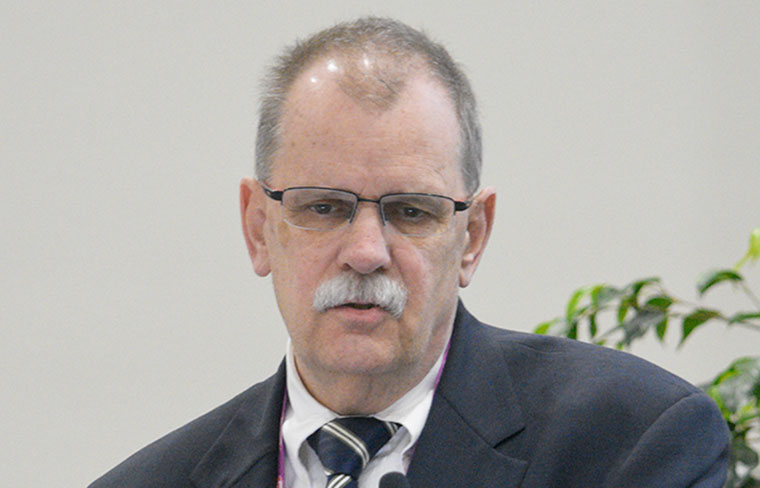
As value-based health care (VBHC) models continue to evolve, more and more health care systems in the U.S. are implementing changes and restructuring around the VBHC framework. This is creating challenges for physicians — including surgeons — and other health care professionals within those systems, according to Monday’s SSAT Maja and Frank G. Moody State-of-the-Art Lecturer David B. Hoyt, MD, FACS, executive director of the American College of Surgeons, Chicago, IL, who offered suggestions for overcoming those challenges.
“As we move further into the era of value-based health care, things are changing and, as surgeons, we need to be able to not only adapt to those changes, but we need to be leaders in ensuring those changes do not impact quality of care for our patients,” Dr. Hoyt said during his lecture Meeting Our Professional Responsibility: Value Based Health Care on Monday. “We work in teams now and we need to develop broader leadership skills, learn to navigate within systems and enhance communication. These are just a few of the things we need to think about, particularly as we train the next generation, as they are essential for success.
Moving forward, Dr. Hoyt said it is important to focus on what author Sebastian Junger identified as the three essential elements for professional contentment — competency, autonomy and community.
“Competency, or mastery of our work, is obviously important,” he said. “You have to be good at what you do. Whether you’re an endoscopist or a surgeon or a primary care doctor, that’s going to give you the confidence to treat patients with a degree of care that they expect and give you a sense of self-fulfillment as well.”
For surgeons, he said, a perceived loss of autonomy may be the biggest challenge to overcome.
“Autonomy is something that is key to our profession and we’ve got to figure out a way to reestablish that,” Dr. Hoyt said. “I think we were all trained to think only of our patient, but today that’s just not enough, and what it’s led to is a deterioration in our workflow balance, and we’ve got to fix that.”
Finally, he said that community, or our egalitarian values, are reflected in the ongoing national health care reform debate.
“I think the key here is not necessarily whether we all believe that health care is a right, it’s more about how can we provide that and actually pay for it,” Dr. Hoyt said. “This is another area where we have to contribute and lead as health care systems change and as we go forward in our professional development.”
From a health and policy standpoint, he said that many barriers still stand in the way of the vision of providing universal access and comprehensive surgical quality of care to all of our patients.
“If we just take a look at the last couple of decades in terms of progress, the Affordable Care Act took a swipe at moving toward more universal coverage, not universal health care necessarily or single payer, but it tried to move us further along,” Dr. Hoyt said. “We, as surgeons, are already on the leading edge of change. Implementing value-based health care will take a culture change across the entire health care system, but it is an achievable goal.”
As we move further into the era of value-based health care, things are changing and, as surgeons, we need to be able to not only adapt to those changes, but we need to be leaders in ensuring those changes do not impact quality of care for our
patients.David B. Hoyt, MD, FACS




One Response
Dear Dr. Hoyt,
I am planning to quote your sentences in one of the manuscripts I am preparing.It is so thought-provoking and encouraging to a young physician like me.
thank you